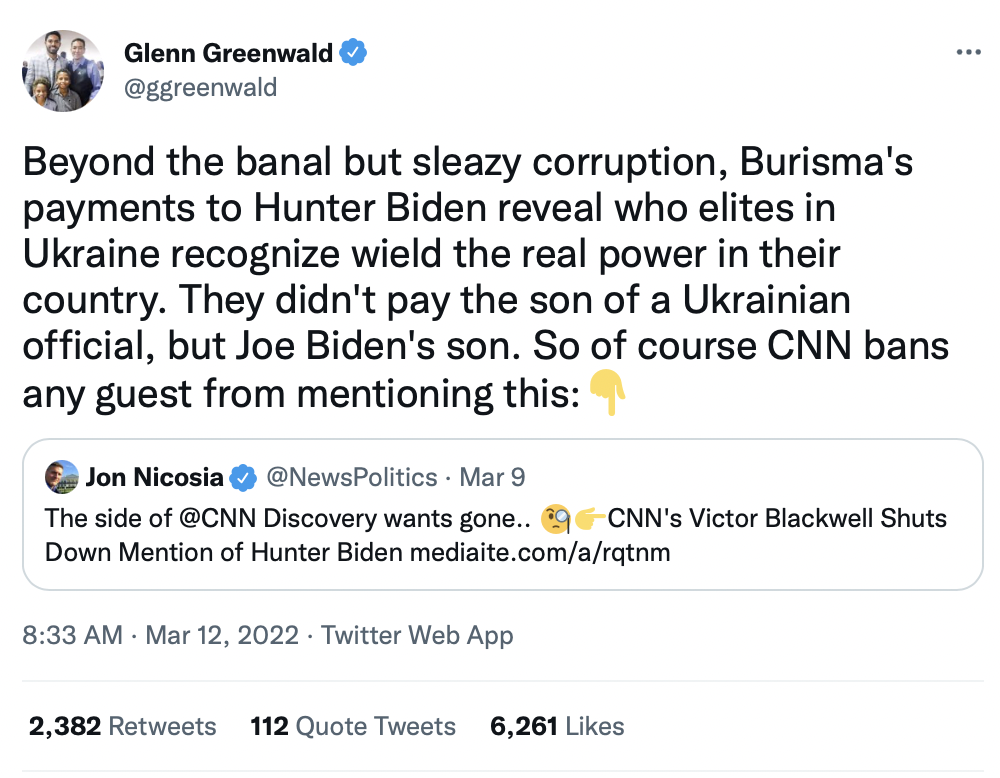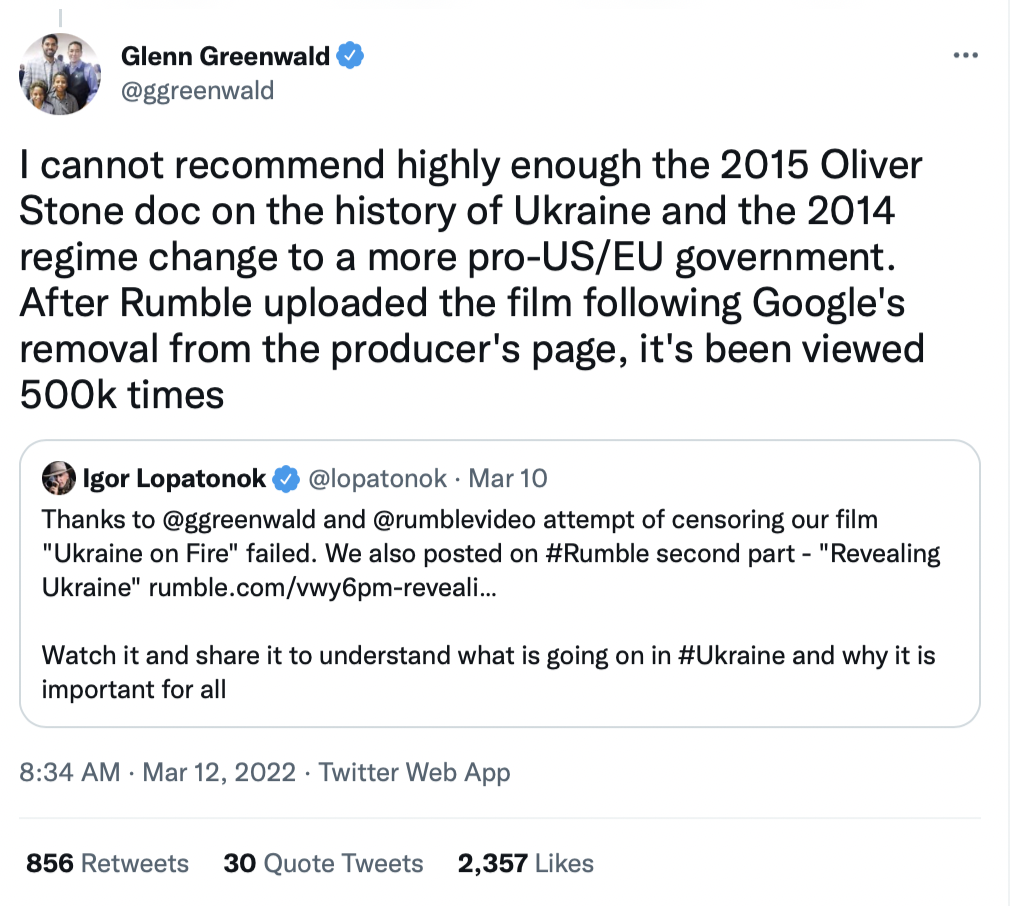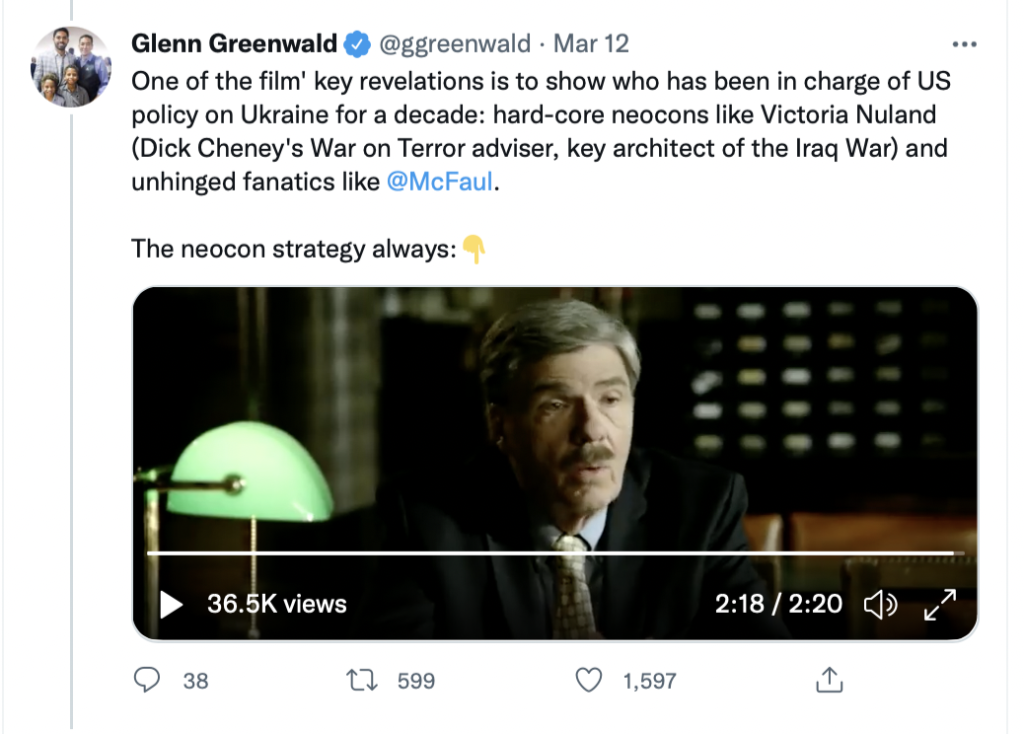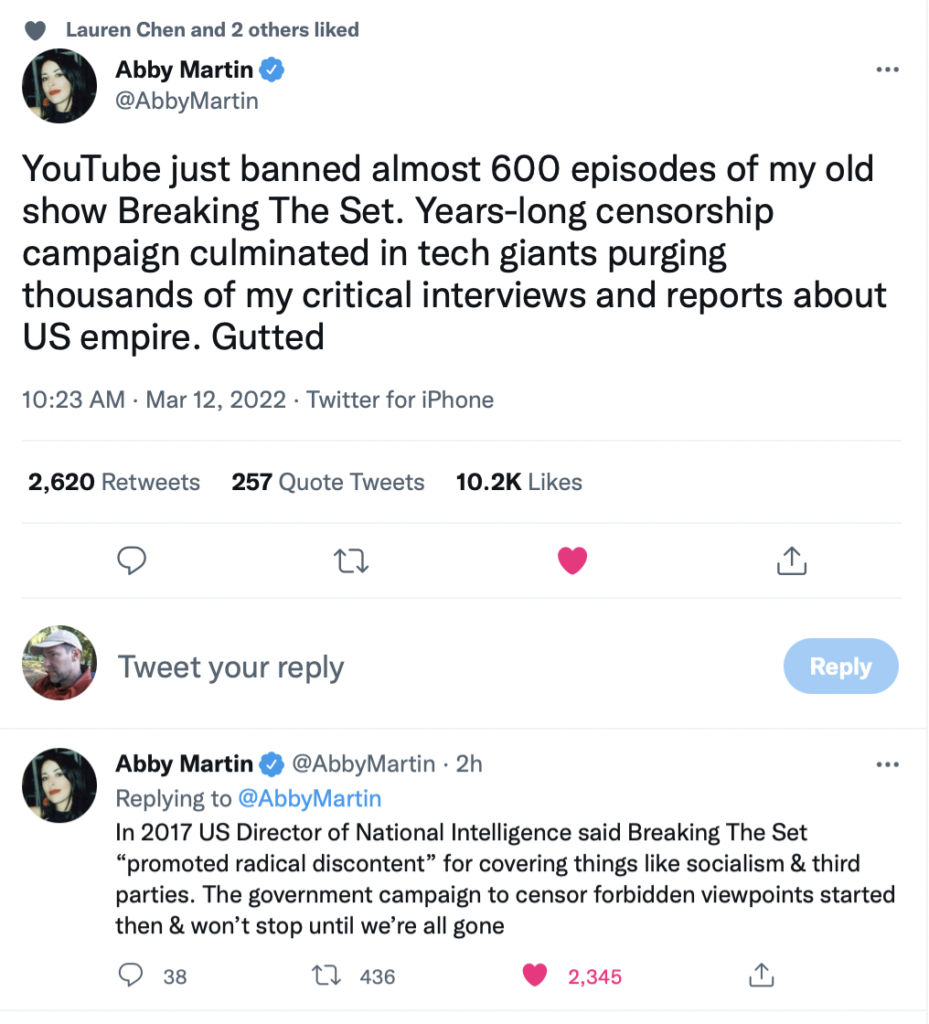Matt Taibbi: The Perils of Ukraine Whataboutism and the Wisdom of George Orwell
An excerpt from Matt Taibbi new article: "Orwell Was Right: From free speech to "spheres of influence" to our passion for endless war, we've become the doublethinkers 1984 predicted":
One would hope there would be at least a few Americans left who’d hear about Russia barring the BBC and Voice of America and at least recognize the sameness of the issue involved with banning RT and Sputnik. Or, seeing how pathetic and manipulative it is for Russians to prevent reporting on war casualties, we’d recall the folly of the ban we had for nearly twenty years on photographs of military coffins, or the continuing pressure on embeds to avoid publishing images of American deaths from our own war zones. We should be able to read that Twitter and Facebook are cracking down on the “fake accounts” spreading “misinformation” that “Ukraine isn’t doing well” and notice that Russia’s measures against “fake news” and “disinformation” about its own military failures — though far more draconian and carrying much more severe penalties — are rooted in the same concept.
We don’t, however, because we long ago reached the doublethink phase predicted by Orwell, where most of the population is conscious of double standards but ignores them effortlessly. A healthy person should be able to be horrified by what’s happening in Russia and also see a warning about the degradation that ensues from using “pre-emptive” force, or from trying to control discontent by erasing expressions of it. But years of relentless propaganda have trained Americans to doublethink their way out of such insights. Cornel West just laid all of this out in an interview with the New Yorker:
Everybody knows if Russia had troops in Mexico or Canada there would be invasions tomorrow. [Biden] sends the Secretary of State, telling Russia, “You have no right to have a sphere of influence,” after the Monroe Doctrine, after the overthrowing of democratic regimes in Latin America for the last hundred-and-some years. Come on, America, do you think people are stupid? What kind of hypocrisy can anybody stand?
That doesn’t mean that Putin is not still a gangster—of course he is. But so were the folk promoting the Monroe Doctrine that had the U.S. sphere of influence for decade after decade after decade after decade, and anybody critical of you, you would demonize. Yet here are you, right at the door of Russia, and can’t see yourself in the mirror. That’s spiritual decay right there, brother, it really is.
We’ve been trained to rage against this thinking. We even have our own borrowed Newspeak word for the offense: Whataboutism. The offender supposedly does a bait-and-switch, distracting with charges of hypocrisy without refuting the actual argument. But a Soviet giving a professionally two-faced answer to questions about Gulags by saying, “And you lynch blacks” isn’t the same as the much more serious thing West is talking about. Lying to others is shameful, but lying to ourselves and not even realizing it, that’s hardcore spiritual decay. We’re being driven faster toward the cliff-edge of this moral insanity with each new act of mass forgetting.




